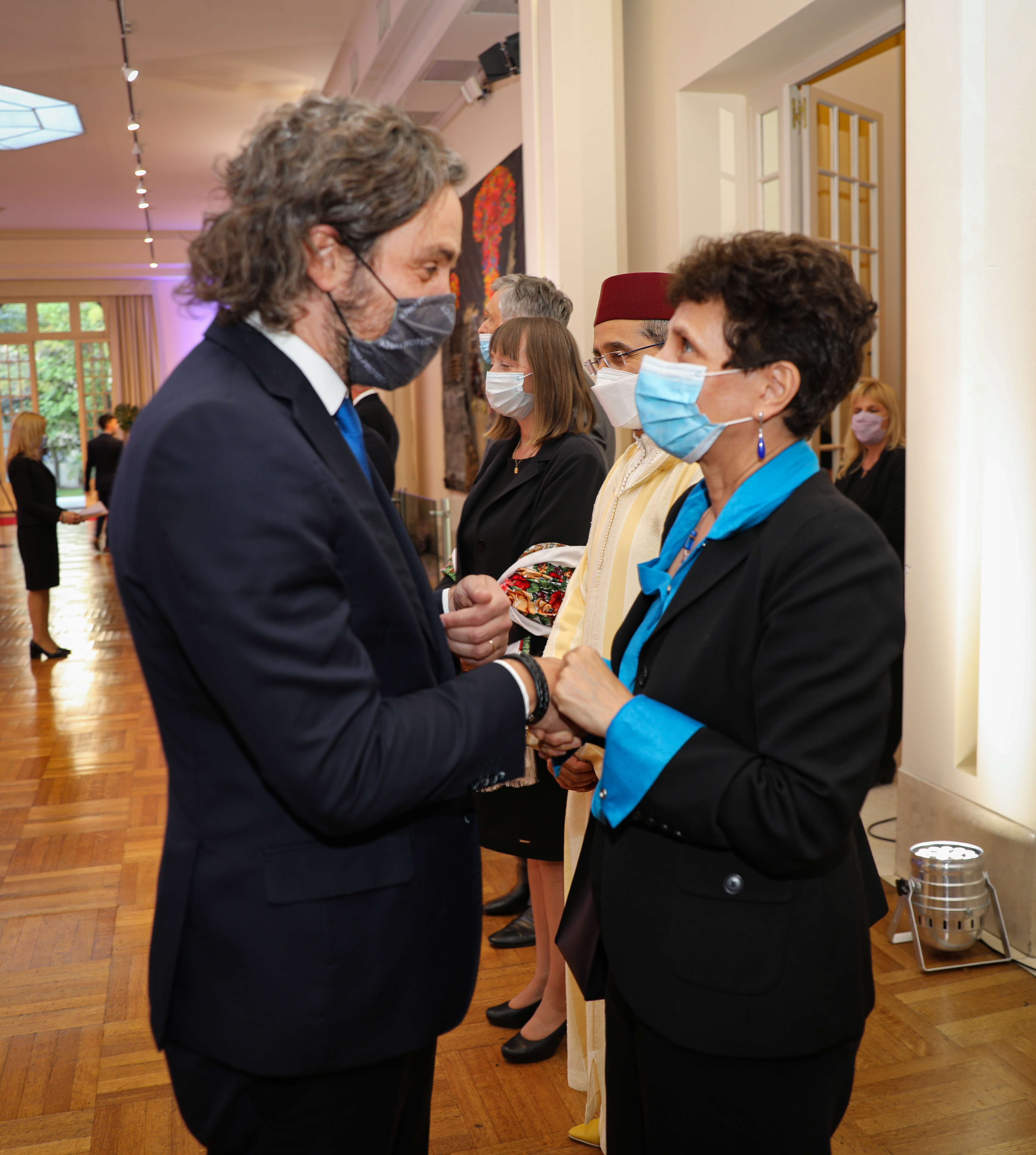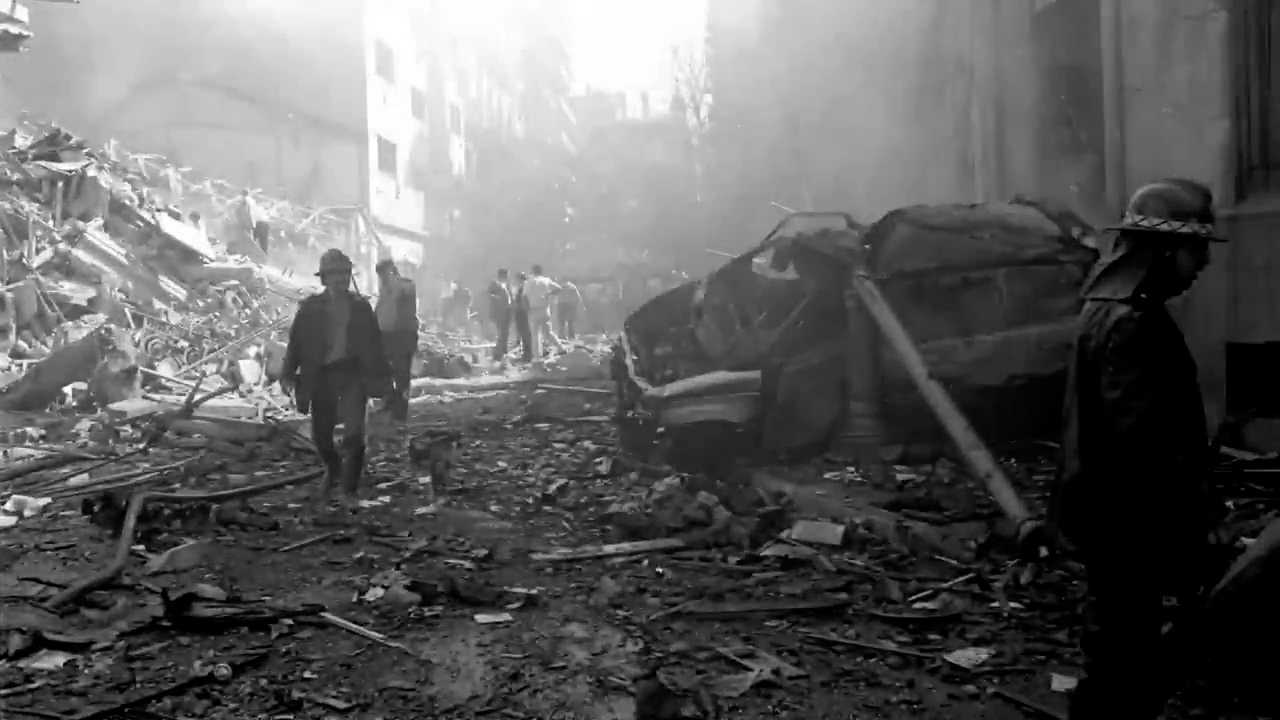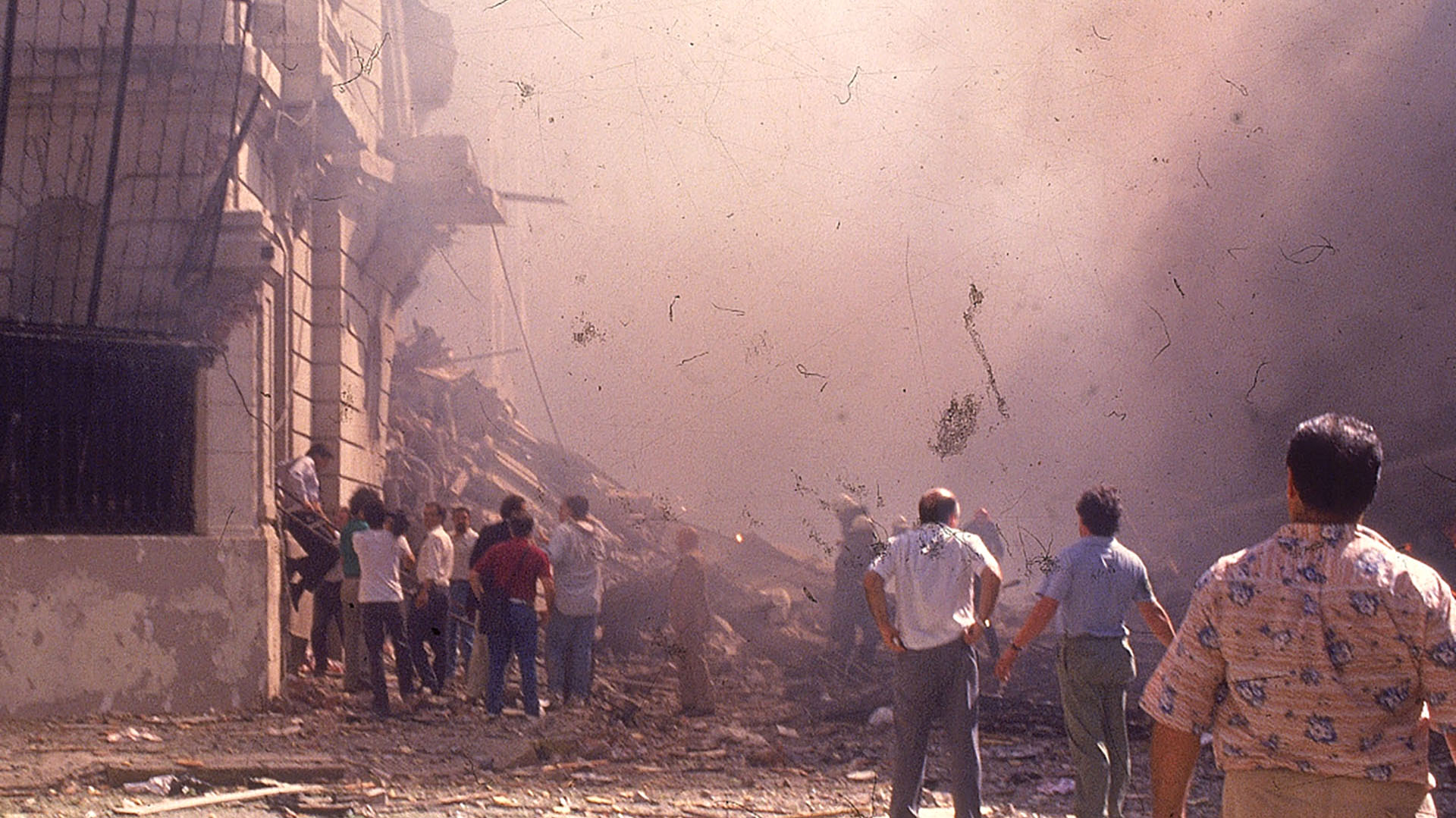
This Thursday will mark the 30th anniversary of the attack on the Israeli Embassy in Argentina and there will be a series of tributes to commemorate what happened in 1992, which left 29 dead and more than 240 injured.
In dialogue with Infobae, the Israeli ambassador to the country, Galit Ronen, recalled the pain of the terrorist act and renewed the call for justice, since after three decades there are no imprisoned perpetrators.
He also detailed the activities that were carried out and that will be carried out tomorrow to keep alive the memory of the deceased and the horror involved in the attack on the Embassy. “We expect justice, even if it is slow,” he said.
“It is 30 years since the attack on the Israeli Embassy. What do you feel after three decades in which there are no prisoners responsible for the terrorist act?
“One can feel that after 30 years there is no justice. On the one hand he feels the pain and emptiness left by those who are no longer with us. On the other hand, we are still looking for justice. We expect justice, even if it is slow. We want it to be. Actually, we need it.
Why is there still no justice after three decades?
“I don't know why. My job is to remember the victims and say that we know who is responsible. It has a first and last name. His name is Hezbollah and his surname is Iran. They, too, were behind the AMIA attack, two years later. The Argentine justice recognized it, we know who did the attack. There are red alerts. We have to do everything we can to capture these people. On the side of Israel, we cooperate with anything we can.

“It was categorical. The person responsible has a first and last name.
—The Supreme Court of Argentina clearly said that the attack was carried out by what is the armed wing of Iran. We all know that Hezbollah is Iran and that they are behind many attacks. Twice in Argentina, but also in other countries around the world. Wherever Iran is, there are problems.
“The case has always been in the hands of the Supreme Court. Do you think that, sooner or later, there will be justice, or that you should get used to it that it is a fact that will go unpunished?
“We can't get used to such a thing. The cause is imprescriptible. The Argentine government put Hezbollah on the list of terrorist groups. They were the first on the continent. We can't say we have to get used to it. We're never going to get used to the lack of justice.
Do you think that Hezbollah cells have been dismantled in the region or that there is still a latent danger?
“What we know about Iran is that they attack where they can. If you think or think they have a chance here in Argentina, or in Israel or anywhere in the world, they will. We have to protect ourselves and prevent. They want to hurt anywhere in the world they can.
Do you fear that there may be a new attack on the Jewish community in Argentina?
It could be against the Jewish community in Argentina, it could be against the Israeli embassy, it could be against other embassies, it could be against symbols of power. Terrorism, as is clear from the name, wants to generate terror. That we do not follow our daily lives. They attack where they can. This can happen anywhere, even in Argentina.

—Since the attack took place until now in Argentina, seven governments of different political signs passed. If you look back and see how each government has stopped in the face of the attack and how far has the investigation progressed or not, what assessment does it make?
“I'm not going to give every government a framework. That's not my function. What I can say is that it doesn't matter what government it is in. Every government has a duty to do justice. Because this attack was not only against the state of Israel, it was against Argentina. Argentina is the country that hosts us. The two attacks were against Argentina.
Do you remember where you were at the time of the attack?
“Since I arrived in Argentina, I am trying to remember where I was at that time. I don't remember. I was very young. I don't know if I was a student or if I was backpacker. I can't remember it.
What is the perception of the Israeli people about what happened and that the Argentine justice system, after three decades, did not find one responsible?
— We are not just looking at Argentine justice, we are looking at Argentina. We're waiting for justice. It's not just a look from the outside, it's also a look from the inside. We know who did it. Now we have to have the perpetrators in jail. Although nothing is going to bring people who are gone. They are wounded in the heart. We can close the circle. We did justice where we could, but we know that the wounded are still there.
“Is the deputy prime minister and minister of justice coming to Israel this week, Gideon Sa'ar. What activity will you have in Argentina?
“We talk about justice and it is important that you come. It has the central event in Suipacha and Arroyo where the old embassy was located. The event will be face-to-face, not like the last two years, which, due to the pandemic, was virtual. He's going to be reunited with the victims' families. This time, relatives from Israel are also arriving. He's going to meet both of you.
- Are you going to meet with President Alberto Fernández?
- Yes. He's meeting with the President and the opposition. I'm going to accompany him.

— How is the relationship between the governments of Argentina and Israel?
—The relationship between Israel and Argentina is profound. They are friendly relations. Like any relationship we have our disagreements too. But we work actively on both sides to strengthen these bonds of friendship. The first place in the world where the President traveled was Israel. This is very important. It was a very clear sign. This visit by the first deputy prime minister is important. When there are disagreements, we work to arrive at a solution that is good for both of us.
“Regarding the tribute, what will the embassy do?
“The event has a protocol that we follow every year. There are hymns, a mermaid, floral offerings and speeches. The Embassy did several other things. The football league made a banner that was in every match. It was a tribute to this event. In these 30 years many people were born. There is a law in Congress that specifies that what happened with the attack must be in the school curriculum. In support of this law we made a 10-minute video to explain, in a modern language, what happened at that time. Let the boys know what happened before they were born. To commemorate is also to educate where hate can take us and to work against hate.
—They also did an audiovisual campaign
“We did a campaign called “the traces of terrorism are still upon us”. We made a short video in which we asked ourselves what remains after an attack. The ashes are left. And, in addition, we have a cultural message. Alejandro Lerner composed a song especially for this anniversary.
What message would you leave to the families of the victims of the attack?
“To the relatives I tell them that I will never get to the place of pain where they are. I can't imagine him in that place. But I can embrace them with love and help them in any way I can. We remember them every day, every moment. We embrace them even though we can never understand the pain they have.
KEEP READING:
Últimas Noticias
Debanhi Escobar: they secured the motel where she was found lifeless in a cistern

The oldest person in the world died at the age of 119

Macabre find in CDMX: they left a body bagged and tied in a taxi
The eagles of America will face Manchester City in a duel of legends. Here are the details

Why is it good to bring dogs out to know the world when they are puppies




